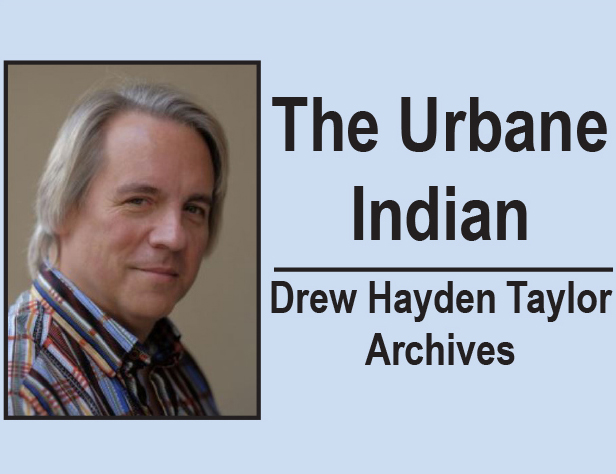
By Drew Hayden Taylor
Originally published in February 2011
It’s official. We got rights. That’s good to know, considering for three years Canada and a number of rather significant other countries thought Indigenous people didn’t deserve them (of course I’m paraphrasing).
But on Dec. 16, 2010, President Obama announced that the United States will sign the United Nations Declaration on the Rights of Indigenous Peoples. It was one of the last countries to do so.
A little over a month before, another ‘better late than never’ country called Canada agreed to do the same. Now the party can really start. I haven’t felt this way since Status Indians got the right to vote back in 1960 and therefore became citizens of our own country. Of course, that was two years before I was born, but you get the point.
Basically the Declaration is not a legally binding instrument under international law, but it does “represent the dynamic development of international legal and norms and it reflects the commitment of the UN’s member states to move in certain directions.”
Native people as a whole are all for moving in certain directions. It also sets “an important standard for the treatment of Indigenous peoples that will undoubtedly be a significant tool towards eliminating the human rights violations against the planet’s 370 million Indigenous people and assisting them in combating discrimination and marginalisation.”
That’s just what I wanted for Christmas. Isn’t it wonderful that this happened just before the holidays? Obama obviously didn’t want to be on Santa’s naughty list.
The declaration also says Indigenous people must be equal partners in all negotiations on self-determination, lands and resources, culture, identity, language, employment, health, education and other issues.
It also “emphasizes the rights of Indigenous peoples to maintain and strengthen their own institutions, cultures and traditions, and to pursue their own visions of economic and social development.” Pretty cool words. Heck, I’d vote for it. Who knows, we might even be able to get the Band council to give it a thumbs up.
It was adopted by the United Nations General Assembly during its 62nd session at UN Headquarters in New York City on Sept. 13, 2007. There were a number of abstainers (bad Bhutan, Azerbaijan, and Bangladesh), but it was immediately endorsed by 145 countries worldwide (yeah Bermuda and Iceland).
But there were four very noticeable rejections of the declaration. And can you guess which four? A little hint: They were originally colonies of a large island nation off the western shores of Europe, and have a spotty history in dealing with the Indigenous populations of those same colonies. They were the United States, New Zealand, Australia, and Canada.
Originally, Canada had problems with the document as a whole, citing that “portions of the current Declaration do not help in providing practical guidance to States, Indigenous peoples and multi-lateral organizations as part of the text are vague and ambiguous, leaving it open to different and possibly competing, interpretations”, and that the document was “fundamentally incompatible with Canada’s constitutional framework.” Of course not. The Canadian government is still wrestling with the interpretation of some treaties signed 150 years ago. I can already tell its going to be a long 21st century.
But that’s all old news now. Canada did an about face and joined the club. On Nov. 12 of last year, the government of Canada pledged to support the Declaration, a good month before the Americans. I guess that’s something to be proud of.
A spokesperson for the Department of Indian and Northern Affairs said “the concerns that were expressed in 2007 do remain. But Canada does support the spirit of the declaration and believes it should be supported as an aspirational document.”
In practical terms, this means the federal government will have to incorporate the Declaration’s principles into current and future laws, policies and programs affecting Aboriginal people. Well, we hope and pray. How many more Christmases till then?
I can’t help but wonder what the bottom line is here. So Canada and the U.S. signed this thing. In the end, what does that mean for the average Indigenous person drinking their Tim Horton’s double double? Will it put more bannock on the table? Will it bring down the disproportionately high levels of Aboriginal incarceration, suicide, diabetes, and school drop-out rates? Will it bring more White customers to our smoke shacks? Will it address the fact that the biggest gamble in many Native communities is not gambling or casinos, but can they drink the water?
I guess the best, and probably only, answer is to take a ‘wait and see’ stance. Still, it would have been so much nicer and yes, cooler, if Canada had been at the forefront, instead of the second last country to sign.
